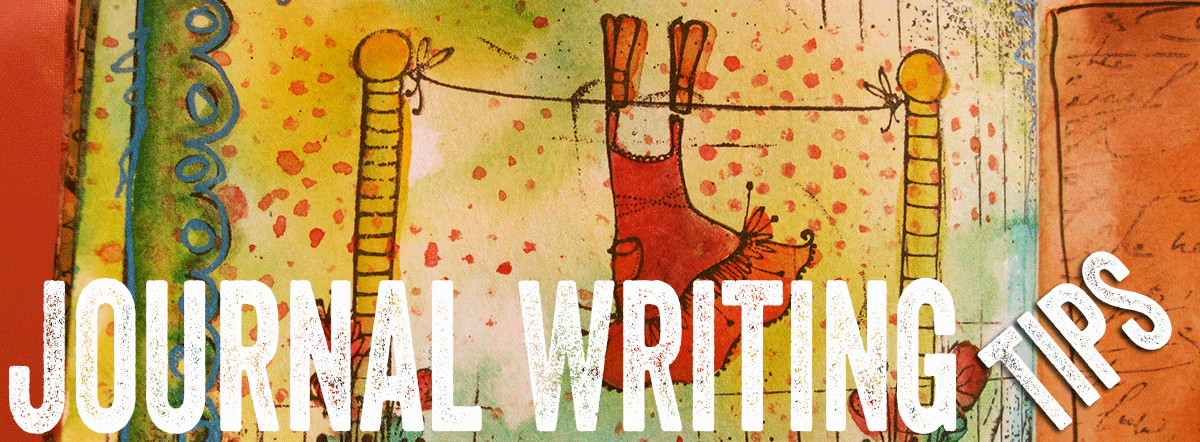-
About
- About Listly
- Community & Support
- Howto
- Chrome Extension
- Bookmarklet
- WordPress Plugin
- Listly Premium
- Privacy
- Terms
- DMCA Copyright
- © 2010-2025 Boomy Labs


 Craig Daniels
Craig Daniels
Listly by Craig Daniels
Source: http://www.whatisdialogue.com/journal-writing-paradox-burnishes-dialogue/

Though I typically write several thousand words a week, I have never been a consistent journaler. I've tried. I have friends who swear by it. It's just never worked for me. Until recently. My wife Gail and I have been on an extended vacation for the past two weeks.

"Always carry a notebook. And I mean always. The short-term memory only retains information for three minutes; unless it is committed to paper you can lose an idea for ever." - Will Self Our decision to become minimalist was intentional. It was based on the realization that our possessions were distracting us from things in life that were more important.

Reflections on the value of recording our inner lives from Woolf, Thoreau, Sontag, Emerson, Nin, Plath, and more. "You want to write, you need to keep an honest, unpublishable journal that nobody reads, nobody but you," Madeleine L'Engle counseled in her advice to aspiring writers. W.H.

"This is not a replacement for people or human contact," said the designer Albert Lee of his new creation, an app called Emojiary. I wanted to believe him. Every day you get a text from the Emojiary bot. It asks how you're doing.

I have been writing something about myself or my everyday for almost 2 years now. It has been one of greatest and most freeing experiences in my life because I can actually slow myself down to think about what's truly happening around me as well as my part in it.
Hi, my name is…Do you know yourself? Without thinking too hard about it, you may just simply say, “of course I do,” yet if you haven’t done some serious introspection and work on who you are, chances are you may only know who you think you are.

You can use your journal as a general record of your daily life. Or you might prefer to focus on a certain topic such as your garden or your reading or current events. You can write about your experiences, your thoughts, your memories. You can use it to collect material to use in fiction writing and poems. Some people keep notebooks next to their beds and write down their dreams.

Keeping a journal is one of the best tools to practice trusting your writing and to make sure you keep writing. You can keep a journal in a cheap or an expensive notebook, on scraps of paper dropped into a box, in computer files or in letter form. Just as long as you write as much and as often as you can without editing yourself and you have access to the words you've written, you are keeping a journal.
If you haven't been journaling or doing it as often as you wish, think about where you write and when you are likely to have time to write. If this is away from home, be sure the notebook you choose is one you like carrying with you. Train yourself to keep your notebook with you. If you are most likely to write at home, keep your notebook in a place in your home where you like to sit.

Perhaps you've kept a diary of some sort at one time or another in your life. You may even keep one right now - you know the ones with the little lock and key that are frequently found hiding between the bed mattresses, under the bed or in the nightstand drawer.

"I don't have time to write a journal!" "I don't know what to write about!" "How do I get started? "I'm a lousy writer!" "HELP!!" Just try these five easy steps. You'll be writing! W What do you want to write about? What's going on? How do you feel?

One of the best things about daily journal writing is that it can take so many forms. Teachers can use journal writing to meet specific goals, or the purpose can be wide open. Some teachers check journal writing and work on polishing skills; others use journals as the one "uncorrected" form of writing that students produce.

Journaling is a term coined for the practice of keeping a diary or journal that explores thoughts and feelings surrounding the events of one's life. Journaling, as a stress management and self-exploration tool, is not the same as simply recording the happenings in one's life, like keeping a log.

"The more light you allow within you, the brighter the world you live in will be." ~Shakti Gawain Keeping a journal has many positive benefits. Journaling can help with personal growth and development. By regularly recording your thoughts you will gain insight into your behaviors and moods.

Contents: introduction · what is a journal? · the benefits of writing and keeping a journal · starting to write and keep a journal · 'harvesting' your journal · conclusion - evaluating writing and keeping a journal · further reading and bibliography · links · how to cite this article.

Real Life Journals is about designing, building, and using journals that help keep your sometimes wobbly little boat afloat. I see this blog as a chance to expand on, question, and make corrections to my recent book of the same title.

If you don't have time to read this whole guide, stick with #1 and you'll do just fine! 1. Keep it Simple Journal writing at its core is simple. You get some paper and a pen, you write a few pages about what's going on. You do it again tomorrow.
